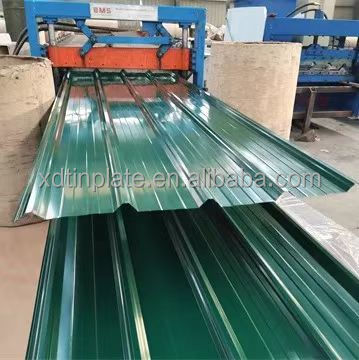
9 月 . 12, 2024 18:19 Back to list
tin mill black plate manufacturers
The Evolution and Importance of Tin Mill Black Plate Manufacturers
Tin mill black plate (TMBP) is a crucial material used in the production of tinplate, which is widely utilized in various packaging, particularly for food and beverages. Manufacturers specializing in tin mill black plate play a significant role in the supply chain, ensuring that the quality and specifications of the plate meet industry standards. This article delves into the importance of TMBP manufacturers, their processes, and the challenges they face in the current market.
The process of producing tin mill black plate begins with the rolling of steel sheets into thin plates. This is typically done using hot-rolled steel, which is then cold-reduced to achieve the desired thickness, often ranging from 0.18 mm to 0.45 mm. After this, the plates undergo several stages of surface treatment to improve their characteristics. These treatments may include pickling, which removes oxides and impurities, and annealing, which enhances the ductility of the material. Finally, the plates are subjected to various quality checks to ensure they meet the specific requirements for further tinning processes.
One of the key advantages of tin mill black plate is its versatility. Manufacturers can customize the plates to cater to specific applications, whether it’s for food cans, aerosol containers, or other packaging solutions. The ability to produce TMBP in a variety of sizes and gauges allows manufacturers to serve a broad spectrum of clients across different industries. Additionally, TMBP provides excellent corrosion resistance when coated with tin, making it a preferred choice for long-lasting packaging.
tin mill black plate manufacturers

However, the industry faces several challenges. The fluctuations in raw material prices, particularly steel, can significantly impact production costs and profitability. Furthermore, the increasing focus on sustainability and environmental regulations mandates that manufacturers adapt their processes to minimize waste and emissions. This requires investment in modern technologies and practices, which can be a financial burden for smaller manufacturers.
Another challenge is the competition from alternative materials. As the packaging industry evolves, the demand for eco-friendly and innovative materials is on the rise. Manufacturers of tin mill black plate must therefore differentiate their products and demonstrate the unique benefits of using TMBP over alternatives like plastic or composite materials.
In conclusion, tin mill black plate manufacturers are vital to the packaging industry, providing essential materials that meet both functional and regulatory standards. The evolution of manufacturing processes and the ability to adapt to market demands will determine their continued success. As sustainability becomes a cornerstone of manufacturing, TMBP producers must innovate and implement greener practices to thrive in a competitive landscape.
-
Galvanized steel sheet price hot-dip galvanized
NewsMar.07,2025
-
Galvanized steel sheet price hot-dip galvanized
NewsMar.07,2025
-
Galvanized steel sheet price hot-dip galvanized
NewsMar.07,2025
-
Galvanized steel sheet price hot-dip galvanized
NewsMar.07,2025
-
Galvanized steel sheet price hot-dip galvanized
NewsMar.07,2025
-
buy corrugated roof sheet end capping
NewsMar.07,2025